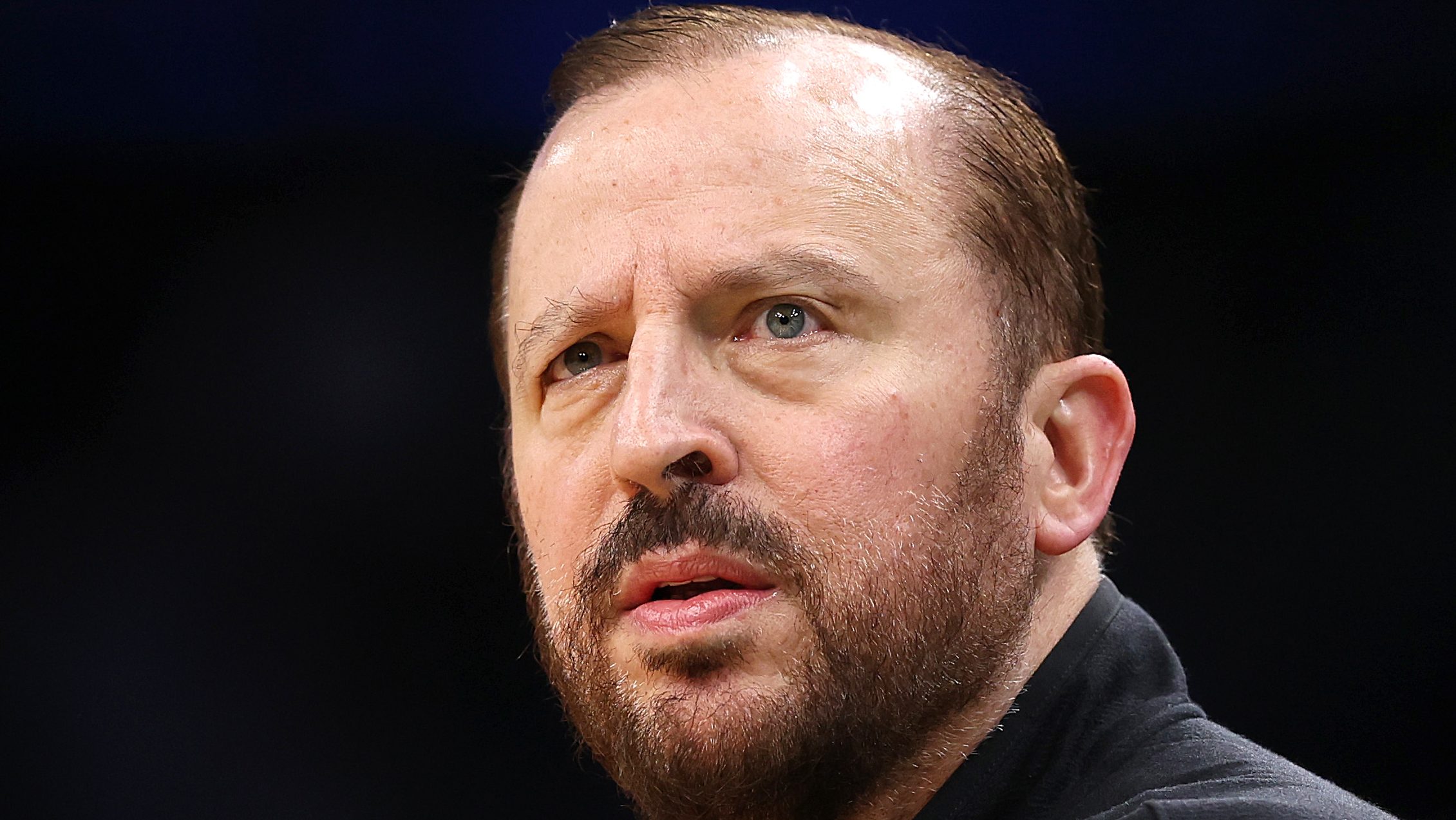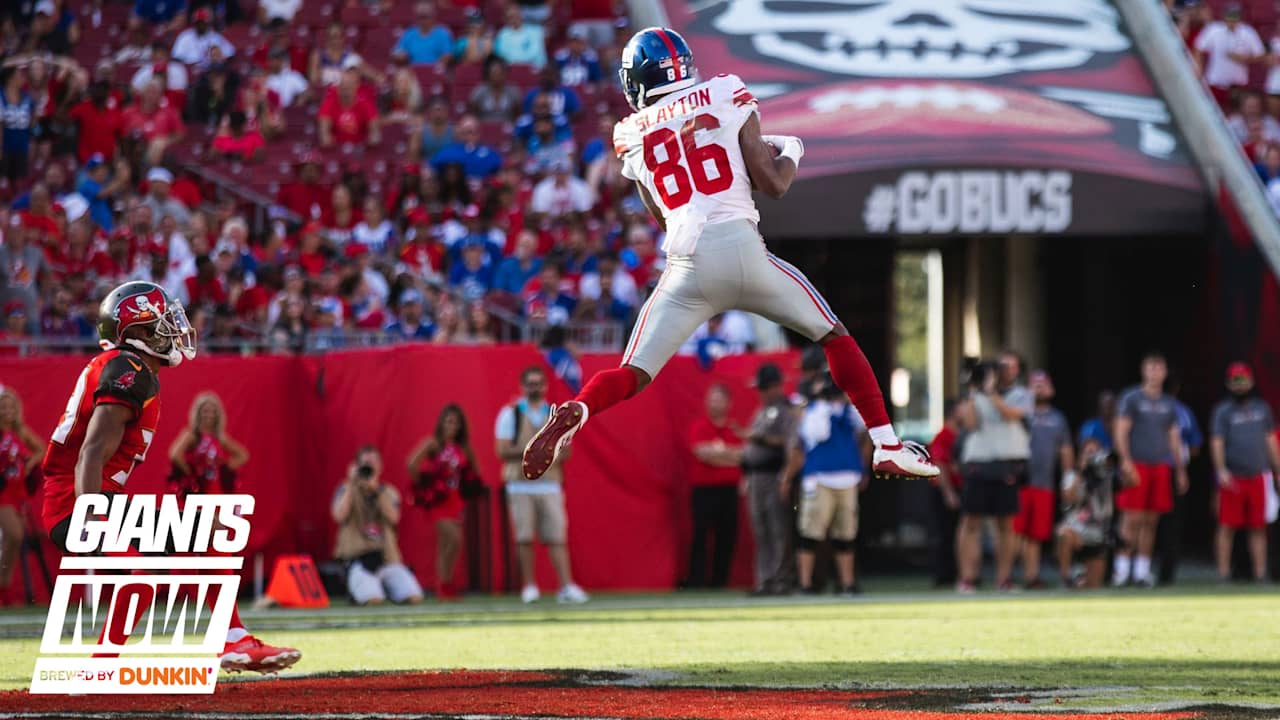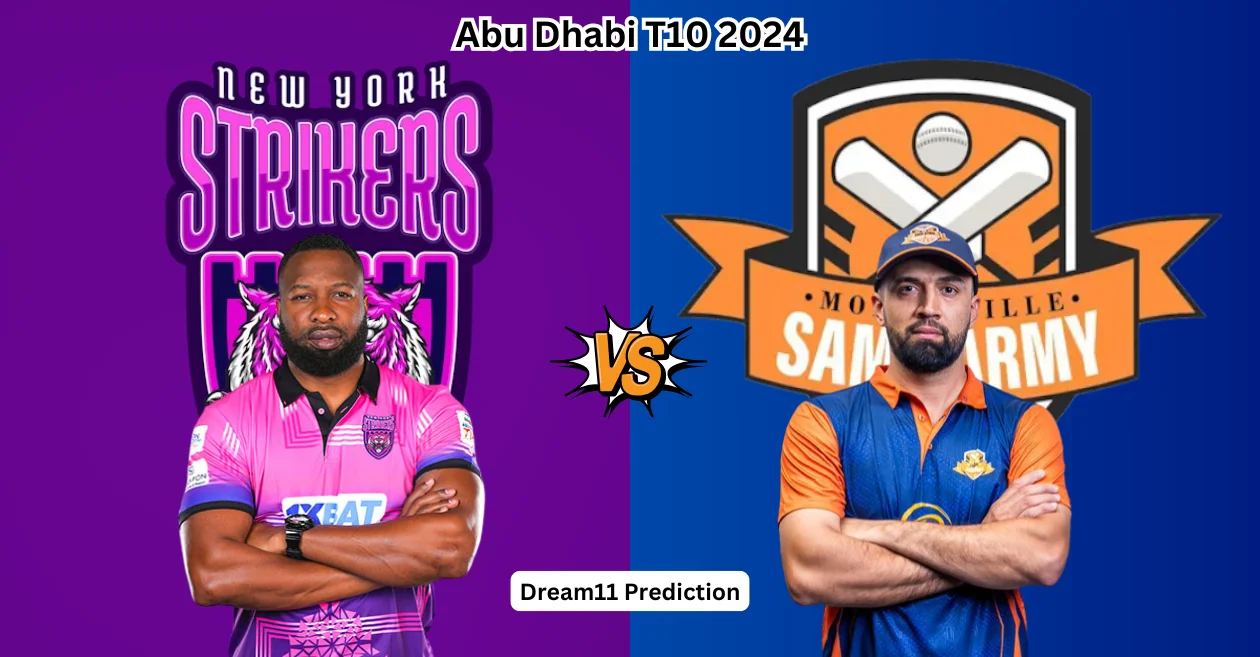Basketball
Knicks-Timberwolves trade grades: What does Karl-Anthony Towns, Julius Randle swap mean?

Just when you thought it was safe to print out those rosters and depth charts as the entire NBA enters training camp this coming week, the New York Knicks and Minnesota Timberwolves shake things up. The Athletic’s Shams Charania and Jon Krawczynski reported a massive and confusing trade on the precipice of being completed by the two teams late Friday night.
The Knicks are set to acquire Karl-Anthony Towns from the Wolves, and are sending back Julius Randle, Donte DiVincenzo, Keita Bates-Diop and a protected first-round pick via the Detroit Pistons. The Charlotte Hornets are also involved in the trade to help balance out salaries in this move for the Knicks.
If you’re scratching your head on this one, join the club. It’s kind of a bizarre trade in many ways, and it’s a massive gamble for both teams. Best way to make heads and tails of this trade is to bust out a red pen and throw down some trade grades.
(No offense to the Hornets grabbing random role-player salaries and secondary draft compensation, but they will not be graded today. This is like a pass/fail pop quiz for them and we’ll give them a pass for absorbing salary dumps to even out the trade.)
…
— Karl-Anthony Towns (@KarlTowns) September 28, 2024
New York Knicks acquire Karl-Anthony Towns
On the surface, this can make some sense for the Knicks. There have been rumors about them going after Towns for some time now, and it finally came to fruition. Towns is a four-time All-Star, two-time All-NBA Third Team selection and one of the best outside shooting big men we’ve ever seen. The best, if you ask him. While Towns is much maligned on the internet, he is a very good player and one of the better big men in the NBA. He can score anywhere on the floor, is an exceptional and effortless outside shooter and is a pretty good rebounder, as well. The Knicks desperately need a center with Mitchell Robinson injured, Isaiah Hartenstein off to Oklahoma City and Jericho Sims as the only real center-sized player left on the roster (you can throw Precious Achiuwa in there sparingly).
Towns absolutely fills a need, and he does so while not disrupting the flow of the Knicks’ offense. They can now play five-out, put tremendous pressure on the perimeter and might even be able to mimic a little bit of what Boston did offensively in its championship run — at least in terms of how the Celtics attack and bombard from the 3-point line. Remember: The Knicks acquired Mikal Bridges this summer, and paired him with OG Anunoby, Josh Hart and Jalen Brunson, as well. So there’s a ton of versatility and perimeter defense. Randle was always an odd fit once Brunson came to the Knicks and quickly established himself as an MVP candidate. Keeping Randle happy with touches and opportunities was always a bit of a ticking bomb because it could very easily take the Knicks out of what was working.
All that said, New York is doing two confusing things here. I wasn’t a big fan of the DiVincenzo signing a year ago because the Knicks didn’t appear to need him much at the time. I thought they needed to prioritize more size on the wing or in the interior. All of that changed when Immanuel Quickley and RJ Barrett were moved in the Anunoby deal. At that point, DiVincenzo became indispensable in their rotation and played the best ball of his career. It’s not that you can’t move him in a deal, even a deal like this. But there was a lot of great vibes gathering by bringing in another Villanova player with Bridges, and the “Nova Knicks” had everybody legitimately excited. They immediately break that up to acquire Towns (RIP Nova Knicks: 2024-2024). Although, this means more playing time for Deuce McBride, and he can really play.
The other confusing part about this for the Knicks is I’m pretty sure Towns drove Tom Thibodeau wild during their time together in Minnesota. Forget, even, the whole Towns and Jimmy Butler thing. Towns would often talk about the defensive tenets that were utilized in his time with the Kentucky Wildcats, as Thibs was pleading with the team to buy in defensively to what he wanted the Wolves to do. Towns has the capability to be a good defensive player. I know that because prior to the Rudy Gobert acquisition, there was always one month of the season in which Towns played great defense and you’d start talking yourself into him finally turning the corner on that end of the floor. Then his bad tendencies would come back and that sentiment would vanish. The fun part was you never knew which month it was going to happen. Towns is too aggressive going for blocked shots and not timely enough to actually affect the shot. That leaves the offensive boards open for the opponent. He also struggles with help positioning and rotations when he’s the primary defensive big man. That’s the biggest part of Thibodeau’s defense with his big men.
The Knicks badly need Towns to be solid defensively. They’re going to be up against an incredible Boston offense, a potentially dangerous Philadelphia squad with Joel Embiid (a Towns nemesis), and the relentless attacking of Giannis Antetokounmpo at the rim and Damian Lillard in a pick-and-roll on the perimeter with Milwaukee. Not to mention teams like Orlando, Indiana, Cleveland and occasionally Miami in the mix. New York desperately needs Towns to play the best, most consistent defense of his career and to rebound against physicality. The good news is when Robinson is back for the Knicks, he and Towns can play alongside each other. Towns showed that often with Gobert in Minnesota.
Even though this is a talent upgrade in the frontcourt where the Knicks were lacking, I’m still confused why this is the move for the Knicks. Their floor is raised but I’m not sure they’ll get to that higher ceiling. Towns has to change the way he’s played on defense to make this a massive win for the Knicks. It also removes any glimmer of financial flexibility Brunson gave them by taking a discount with his extension. Towns is signed through 2027 for $160 million and then has a $61 million player option for the 2027-28 season.
Grade: B-
GO DEEPER
Katz: What’s next for Knicks after Karl-Anthony Towns trade?
Minnesota Timberwolves acquire Julius Randle, Donte DiVincenzo and a 2025 protected first via Detroit
No matter what they say, this feels like a second-apron trade. The Wolves went all in with max contracts for KAT, Gobert and Anthony Edwards, while also giving a massive deal to Jaden McDaniels last year. Everybody knew this was going to be too expensive in the world of the new collective bargaining agreement.
However, the Wolves making the Western Conference finals for the first time since 2004 made it seem like there was a short run in this franchise to see if it could punch through even further. After all, the Wolves took down the defending champion Denver Nuggets and their three-time MVP Nikola Jokić. They solved the unsolvable problem when it came to the hierarchy of the West (there’s a chance, by the way, that the Nuggets are loving this cap move by the Wolves, considering Minnesota’s size hurt Denver in the playoffs). Sure, the Wolves got beat in the conference finals by a great Dallas Mavericks team, but the Wolves should have had another bite at the apple.
Apparently, that’s not the case despite the ascension of Edwards into a superstar and franchise leader.
The Wolves accomplish four things with this trade. First, they add some much-needed depth and playmaking to the backcourt. If the Wolves get anything close to what DiVincenzo did for the Knicks last year, he’s almost a perfect complement to Ant on the court. His shooting helps ease the loss of Towns on that end of the floor, and he can handle the ball and pass well enough as a secondary creator. This could help Mike Conley conserve energy in his old age and it takes the pressure off Rob Dillingham to perform as a rookie. It almost means less reliance on Nickeil Alexander-Walker, who was too streaky on offense at times in big games.
Second, they make things super weird on offense. The Wolves were not a good offensive team last season. They struggled quite a bit to be consistent and ended up a league-average offense. Randle does not help that. He has his strengths on offense, but he’s also a ball-stopper in terms of offensive flow. That can be fine when Edwards isn’t in the game. They can run a lot of offense through Randle and he can play bully ball. He adds some good physicality next to Gobert and he can punish opponents physically with his play. But he’s also a terrible fit for spacing with Gobert on the court, if Edwards ever wants to think about driving (he does).
Third, the Wolves maybe open up some more minutes for Naz Reid, which could be good. I do think there is potential for Reid to get more opportunities. The Wolves don’t have to be as concerned with feeding Randle’s ego as they were with Towns — not that Towns is necessarily a problem in that respect because he did adapt quite well to Edwards taking over the team and Gobert getting right on the court. But now the Wolves can throw even more support to Reid, who is a tremendous offensive presence on the floor. This might even be a long-term play for them with Reid once Randle moves on.
Finally, they alleviate some of that second-apron threat with this trade. Randle has a $30 million option for next season. Worst-case scenario for the Wolves, he exercises that and they can then have him as an expiring deal to move. Possibly for depth? This feels so much like a second-apron trade for the Wolves, which is very disappointing for a team that just made the conference finals. Maybe this was the only way to maximize this opportunity, but I’m just not sure how this fits on the court. It might not be worth the savings and flexibility added. They’ll definitely need Edwards to keep improving and keep building toward being one of the best players in the league for this to hold off all the questions this trade brings up.
As for the pick from the Pistons, it is top-13 protected in 2025. The Pistons will absolutely be in the top-13 picks. It’s top-11 protected in 2026 and top-nine protected in 2027. Otherwise it becomes a second in 2027. Maybe that conveys to them in 2027 as a first, but the Pistons have a lot of work to do to make this anything other than a second-round pick for the Wolves. So it might be one of those fake first-round picks that looks good in a news release.
This is one of the rare trades where I just don’t really like it for either team. It feels a little like they both believe they’re pulling one over on their trade partner by moving a big man in which they were no longer full believers. A real “that’s their problem now” kind of vibe. But that doesn’t mean the joke is on the trade partner. It might be on everybody.
Grade: C+
Required reading
John Hollinger: Why KAT-for-Randle trade may turn ‘best player’ maxim on its head
James L. Edwards III: Why acquiring Karl-Anthony Towns doesn’t guarantee Knicks got better
(Top photo of Karl-Anthony Towns: Tim Nwachukwu / Getty Images)











